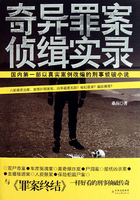The true peace of the world will be a place of refuge much less like a beleaguered fortress and more, let us hope, in the nature of an Inviolable Temple. It will be built on less perishable foundations than those of material interests. But it must be confessed that the architectural aspect of the universal city remains as yet inconceivable--that the very ground for its erection has not been cleared of the jungle.
Never before in history has the right of war been more fully admitted in the rounded periods of public speeches, in books, in public prints, in all the public works of peace, culminating in the establishment of the Hague Tribunal--that solemnly official recognition of the Earth as a House of Strife. To him whose indignation is qualified by a measure of hope and affection, the efforts of mankind to work its own salvation present a sight of alarming comicality. After clinging for ages to the steps of the heavenly throne, they are now, without much modifying their attitude, trying with touching ingenuity to steal one by one the thunderbolts of their Jupiter. They have removed war from the list of Heaven-sent visitations that could only be prayed against; they have erased its name from the supplication against the wrath of war, pestilence, and famine, as it is found in the litanies of the Roman Catholic Church; they have dragged the scourge down from the skies and have made it into a calm and regulated institution. At first sight the change does not seem for the better. Jove's thunderbolt looks a most dangerous plaything in the hands of the people. But a solemnly established institution begins to grow old at once in the discussion, abuse, worship, and execration of men.
It grows obsolete, odious, and intolerable; it stands fatally condemned to an unhonoured old age.
Therein lies the best hope of advanced thought, and the best way to help its prospects is to provide in the fullest, frankest way for the conditions of the present day. War is one of its conditions;it is its principal condition. It lies at the heart of every question agitating the fears and hopes of a humanity divided against itself. The succeeding ages have changed nothing except the watchwords of the armies. The intellectual stage of mankind being as yet in its infancy, and States, like most individuals, having but a feeble and imperfect consciousness of the worth and force of the inner life, the need of making their existence manifest to themselves is determined in the direction of physical activity. The idea of ceasing to grow in territory, in strength, in wealth, in influence--in anything but wisdom and self-knowledge--is odious to them as the omen of the end. Action, in which is to be found the illusion of a mastered destiny, can alone satisfy our uneasy vanity and lay to rest the haunting fear of the future--a sentiment concealed, indeed, but proving its existence by the force it has, when invoked, to stir the passions of a nation. It will be long before we have learned that in the great darkness before us there is nothing that we need fear. Let us act lest we perish--is the cry. And the only form of action open to a State can be of no other than aggressive nature.
There are many kinds of aggressions, though the sanction of them is one and the same--the magazine rifle of the latest pattern. In preparation for or against that form of action the States of Europe are spending now such moments of uneasy leisure as they can snatch from the labours of factory and counting-house.
Never before has war received so much homage at the lips of men, and reigned with less disputed sway in their minds. It has harnessed science to its gun-carriages, it has enriched a few respectable manufacturers, scattered doles of food and raiment amongst a few thousand skilled workmen, devoured the first youth of whole generations, and reaped its harvest of countless corpses. It has perverted the intelligence of men, women, and children, and has made the speeches of Emperors, Kings, Presidents, and Ministers monotonous with ardent protestations of fidelity to peace. Indeed, war has made peace altogether its own, it has modelled it on its own image: a martial, overbearing, war-lord sort of peace, with a mailed fist, and turned-up moustaches, ringing with the din of grand manoeuvres, eloquent with allusions to glorious feats of arms; it has made peace so magnificent as to be almost as expensive to keep up as itself. It has sent out apostles of its own, who at one time went about (mostly in newspapers) preaching the gospel of the mystic sanctity of its sacrifices, and the regenerating power of spilt blood, to the poor in mind--whose name is legion.
It has been observed that in the course of earthly greatness a day of culminating triumph is often paid for by a morrow of sudden extinction. Let us hope it is so. Yet the dawn of that day of retribution may be a long time breaking above a dark horizon. War is with us now; and, whether this one ends soon or late, war will be with us again. And it is the way of true wisdom for men and States to take account of things as they are.
Civilisation has done its little best by our sensibilities for whose growth it is responsible. It has managed to remove the sights and sounds of battlefields away from our doorsteps. But it cannot be expected to achieve the feat always and under every variety of circumstance. Some day it must fail, and we shall have then a wealth of appallingly unpleasant sensations brought home to us with painful intimacy. It is not absurd to suppose that whatever war comes to us next it will NOT be a distant war waged by Russia either beyond the Amur or beyond the Oxus.















